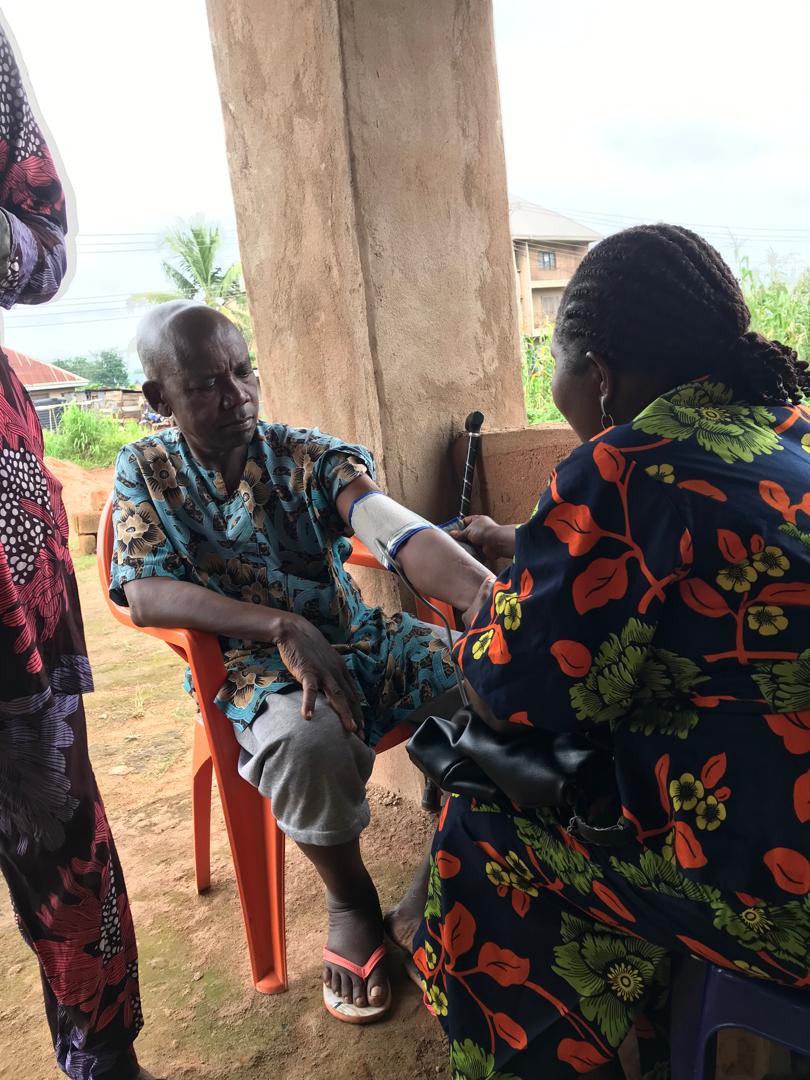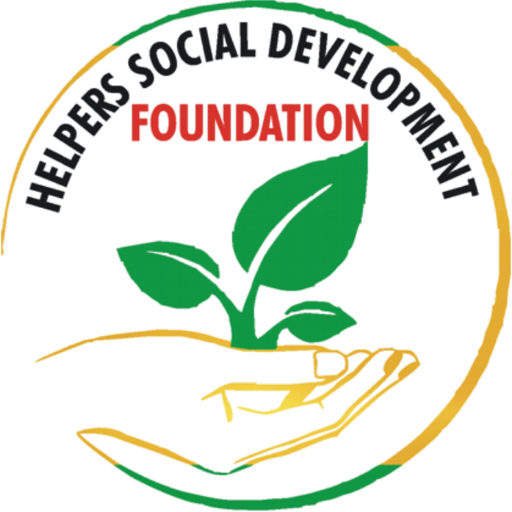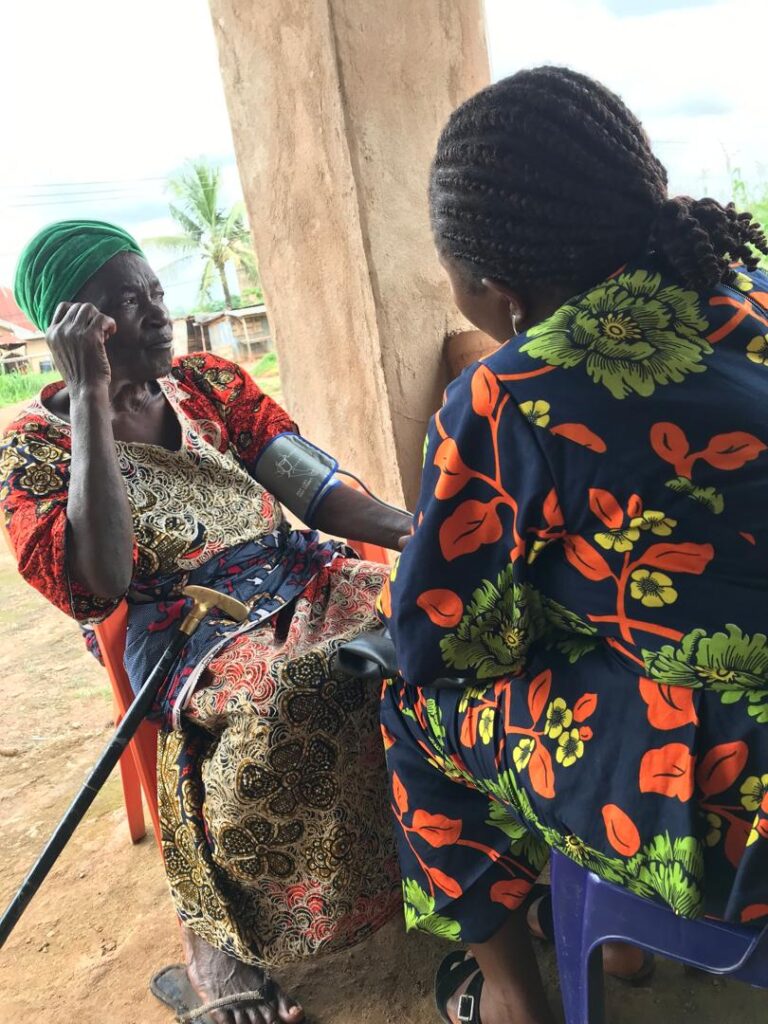In continuation of Helpers Social Development Foundation humanitarian efforts to stop the spread of Hiv Aids, Tuberculosis and other related diseases in Nigeria, we are happy to announce another project focusing on blood sugar and blood pressure screening program in Enugu state and Anambra state in collaboration with our partner. Blood sugar and blood pressure screenings are vital in early detection and prevention, especially in communities where access to healthcare may be limited. This proactive approach will surely make a difference in many lives. According to World Health Organization (WHO) reports that Nigeria has a high prevalence of hypertension, with 30.6% of the population affected and About 60% of people with diabetes in Nigeria also have high blood pressure.
Paid Job Opportunity Alert for organization or community testers: Join Helpers Foundation Blood Sugar & Blood Pressure Screening Program to save lives in Nigeria.
Helpers Social Development Foundation is a nonprofit organization committed to making a difference in Nigeria in the area of Health, Education and Economic Empowerment.
Program Overview:
Helpers Foundation excited to announce the launch of Blood Sugar and Blood Pressure Screening Program in Enugu and Anambra state starting November 2024 dedicated to promoting health and wellness through early detection and prevention of diabetes and hypertension.
Regular monitoring of blood sugar level and blood pressure can help identify risks early, empowering individuals to make informed health choices that prevent serious complications. This program will play a vital role in improving health outcomes in our community, and we are seeking skilled health professionals and committed community volunteers to join our team.
Interesting story: how to reduce poverty in developing countries
Available Positions: 1. Health Professionals (Nurses, Medical Assistants, Nutritionists) or experienced community testers.
Responsibilities: – Conduct blood pressure and blood sugar screenings. – Provide immediate feedback and guidance based on screening results.- Educate participants on managing blood sugar and blood pressure levels. – Document results and ensure proper follow-up for high-risk individuals. Requirements: – Knowledge of diabetes and hypertension management. – Strong communication skills to educate and engage participants. – Compassionate and patient-focused approach.
2. Community Volunteers Responsibilities: – Assist with participant registration and program setup. – Support health professionals in guiding participants through the screening process. – Distribute educational materials on health and wellness. – Help create a welcoming and supportive environment. Requirements: – Passion for community health and wellness. – Strong interpersonal and organizational skills.- Ability to work as part of a team in a fast-paced setting.
How to Apply for rural community free blood sugar and blood pressure screening:
Interested persons should come with their CVs to Helpers Social Development Foundation office at no 70 Adelabu street Uwani Enugu by Nise Bus stop.
Interview Date: Tuesday 5-11th November 2024. Project implementations commence after the interview date.
Important of conducting free sugar and blood pressure in rural communities in important and how it can save lives in Nigeria
 Conducting free blood sugar and blood pressure screenings in rural communities is essential for several reasons:
Conducting free blood sugar and blood pressure screenings in rural communities is essential for several reasons:
- Early Detection and Prevention: High blood pressure and elevated blood sugar often show no symptoms initially. Screening helps identify these silent conditions early, preventing complications like heart disease, kidney failure, and diabetes complications.
- Accessibility: Many rural communities have limited access to healthcare services. Bringing these free screenings to them allows early intervention for those who might not otherwise be checked.
- Health Awareness and Education: Free Screening programs also educate communities on lifestyle changes to prevent and manage high blood pressure and diabetes, empowering individuals to make healthier choices.
- Cost Savings: Preventative health measures are more cost-effective than treating advanced conditions, reducing the long-term healthcare burden on both individuals and the healthcare system.
- Community Trust and Engagement: Free Programs like this show that people’s health matters, building trust within the community and encouraging further engagement in health and wellness programs.
These screenings can save countless lives by addressing health issues early and promoting healthier communities across rural communities in Anambra and Enugu State.
According to Nigeria’s high prevalence of hypertension and the overlap between hypertension and diabetes are complex issues influenced by several interrelated factors:
- Genetic Susceptibility: Certain populations, including those in sub-Saharan Africa, have a genetic predisposition to hypertension. This makes individuals more susceptible to elevated blood pressure, especially when coupled with other lifestyle and environmental factors.
- Urbanization and Lifestyle Changes: As Nigeria becomes more urbanized, people are adopting more sedentary lifestyles and diets high in salt, fats, and processed foods. These lifestyle changes contribute significantly to hypertension and diabetes risk.
- Limited Access to Healthcare: Many people in Nigeria, particularly in rural areas, lack access to regular health screenings, making early detection of hypertension and diabetes rare. Without early intervention, individuals may go untreated for years, which increases the severity and complications of these conditions.
- High Levels of Stress: Economic challenges, job instability, and other social stressors prevalent in Nigeria can increase stress levels, which is a contributing factor to hypertension.
- Low Awareness and Health Education: Many people are unaware of hypertension and diabetes, their symptoms, or their complications. This lack of knowledge prevents early intervention and often leads to late diagnoses when the disease has progressed.
- Coexisting Health Conditions: Obesity, which is a known risk factor for both hypertension and diabetes, is becoming more prevalent in Nigeria due to diet and lifestyle shifts. Since diabetes and hypertension are often interlinked, people with one condition are at a higher risk of developing the other.
Addressing these issues will require a comprehensive approach involving public health campaigns, accessible screening, and treatment programs, lifestyle education, and improved healthcare infrastructure.

